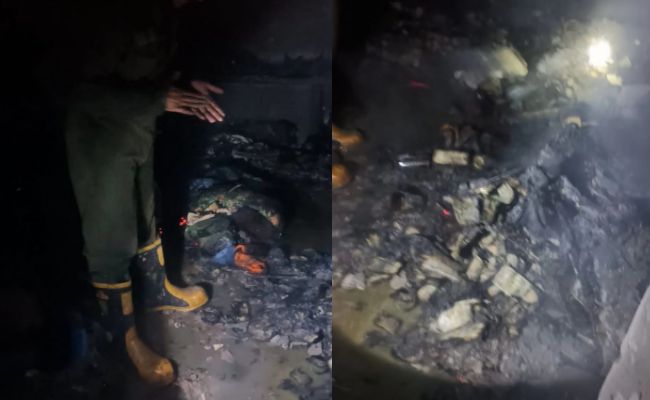The impeachment of Justice Yashwant Varma - the ex-Delhi High Court judge at whose home "piles of burnt Rs 500 notes" were found - began Monday afternoon after 145 MPs, from ruling and opposition parties, submitted a memorandum to Lok Sabha Speaker Om Birla.
Sources said MPs from opposition parties like the Congress and Communist Party of India (Marxist) signed the memorandum, as did those from the ruling Bharatiya Janata Party and its allies, including the Telugu Desam Party, the Janata Dal United, and Janata Dal Secular.
Among the signatories so far are ex-union minister Anurag Thakur from the BJP, the Congress' Rahul Gandhi, and Supriya Sule from the Sharad Pawar-led Nationalist Congress Party faction.
The impeachment of a sitting High Court judge - a first for independent India - will now be investigated by Parliament under Articles 124, 217, and 218 of the Constitution, sources said.
What Is Impeachment?
It is a constitutional mechanism to remove a sitting judge - specifically those from the Supreme Court or a state High Court - from his/her office. Once appointed, judges cannot be removed from office without an order from the President, who, in turn, requires consent from Parliament.
NDTV Explains | How Do You Remove A Sitting Judge? Impeachment Explained
The Constitution does not actually refer to the word 'impeachment', but the procedure to remove judges is outlined in the Judges Inquiry Act of 1968 and mentioned in two constitutional provisions - Article 124 (for Supreme Court judges) and Article 218 (for those from High Courts).
How Is Impeachment Done?
An impeachment motion can be introduced in either House of Parliament.
At least 50 Rajya Sabha MPs must sign the motion - which is a record of the intention to impeach - for it to proceed further. In the Lok Sabha that number is 100.

Visuals from the burnt outhouse on Justice Varma's bungalow grounds.
Once that threshold is reached, the Chair of the former or the Speaker of the latter, depending on which House admits the motion, will review the available materials.
Centre Confirms Impeachment
On Sunday Parliamentary Affairs Minister Kiren Rijiju confirmed a large number of MPs - including at least three dozen from the Congress - had signed the memorandum.
READ | "100 MPs Signed": Kiren Rijiju On Impeachment Of Cash Row Judge
The government has made it clear it intends to try and remove Justice Varma, who has since been returned to his parent High Court in Allahabad, and stood down from active duty.
Justice Varma Cash-At-Home Case
The controversy broke on March 15. Firefighters called to the judge's bungalow in central Delhi discovered piles of money that had been burnt by a fire that spread from the main building.
Justice Varma has denied any link to the cash, and labelled allegations of impropriety against him and members of his family "preposterous". He has also claimed a 'conspiracy' against him.
READ | "Proof Cash Found At Justice Varma's Home": Probe Panel's Findings
However, the discovery of the burnt cash triggered a massive row that included questions about corruption in the highest levels of the judicial system. In response the Supreme Court set up an in-house panel that recommended the impeachment of Justice Yashwant Varma.
That report was forwarded to President Droupadi Murmu and Prime Minister Narendra Modi - by then Chief Justice of India Sanjiv Kumar - with the same recommendation.
Among other points, the 64-page document, accessed by NDTV, highlighted the fact that access to the outhouse in which the money was found was maintained by the judge and his family".
Justice Varma's Objections
Last week Justice Varma approached the Supreme Court to challenge the in-house committee's report. He questioned the jurisdiction and authority of the committee to probe a sitting judge.
He argued the committee ignored questions he had raised and that could speak to his innocence, and denied him a fair hearing. He also argued neither the Chief Justice nor the Supreme Court had 'power of superintendence', i.e., they cannot take disciplinary action against High Court judges.
READ | In Cash-At-Home Case, Justice Varma's 5 Anti-Impeachment Reasons
No judge in independent India has been impeached, although there have been five it was a possibility. The most recent case was in 2018 and involved ex-Chief Justice of India Deepak Misra, who was accused of administrative misconduct and arbitrary allocation of cases.
NDTV is now available on WhatsApp channels. Click on the link to get all the latest updates from NDTV on your chat.
Track Latest News Live on NDTV.com and get news updates from India and around the world

